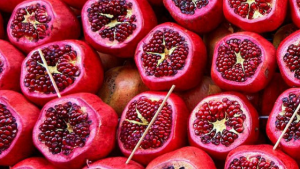
Is pomegranate the ultimate solution to all of your “sex-drive” needs? What are the benefits of pomegranate?
What if I told you pomegranate could help all of your sexual health problems, from low testosterone and diminished libido to erectile dysfunction to even prostate cancer? This superfood is filled with antioxidants that have proven results to help both men and women have better sex lives. This fruit can increase testosterone levels, improve sperm quality, and increase sex drive and mood.
Pomegranate has three times more antioxidants than even red wine and green tea. Antioxidants are what improve blood circulation, decrease inflammation, reduce the risk of heart disease, and fight harmful free radicals that cause aging, illness, and cancer. Pomegranate antioxidants have even been known to help fight breast cancer.
If you’re looking to improve your sexual health, you need to add pomegranate to your daily lineup. From juice to seeds to supplement extracts, it’s easy to enhance your life with the wonders of pomegranate.
Let’s take a deep dive into the 5 benefits of pomegranates for your sexual and overall health.
1. Boosts testosterone

Testosterone is the “manly” hormone that controls your facial hair, deep voice, muscle growth, and even your sex drive. Low levels of testosterone can become a serious health problem leading to lowered energy, depression, diminished libido, weight gain, muscle loss, brain fog, and more. Women also need testosterone for their sex drive and regulation of estrogen levels.
By the way, low T means low libido… and low libido means a low desire for sex. If you have been losing your interest in sex recently, you may be suffering from low testosterone levels.
I always recommend increasing testosterone levels the natural way before resorting to costly (and often ineffective) testosterone replacement therapies. A daily intake of pomegranate is one of the easiest (and tastiest) ways to improve your testosterone.
Firstly, pomegranate is shown to block estrogen production. The Beckman Research Institute in California reported that pomegranate is rich in ellagittanins (ET). ETs convert into compounds that are used to stop your androgens from turning into estrogens. Basically, ET helps lower the production of estrogen.
This is critical to testosterone levels. Too much estrogen can interfere with libido, hurt erectile health, and damage bone strength. Plus, estrogen actually blocks testosterone production. High levels of estrogen actually further diminish T levels to create an unhealthy imbalance of hormones that are destructive to male sexual health.
A study at the Queen Margaret University in Edinburgh, Scotland found that participants who were given one glass of pomegranate juice per day for two weeks had a 24% increase in testosterone on average. They also saw further results linked to improved testosterone, balanced hormones, and regulated mood:
- Decreased blood pressure
- Decline of stress levels
- Increase in positive emotions, especially self-confidence
- Heightened mood
- Lowered feelings of shyness, fear, and sadness
2. Treats erectile dysfunction
It’s important to note that the Queen Margaret study found not only an increase in testosterone levels, but also an increase in positive emotions as well. Stress, anxiety, low self-confidence, and fear are all major causes of erectile dysfunction. This study demonstrated that pomegranate might be able to improve psychological concerns that could cause erectile dysfunction.
Furthermore, pomegranates help address three major causes of erectile dysfunction: restricted blood flow/high blood pressure, heart disease, and obesity.

Blood flow
You need proper blood flow in order for your penis to fill with blood and get “hard.” If you have high blood pressure, damaged arteries, or vascular problems, blood flow to the penis can be restricted, thus causing erectile dysfunction. Some studies show that pomegranate juice can reduce systolic blood pressure with “promising acute hypotensive properties.” This lowered blood pressure can help promote blood flow to the penis when it’s time for an erection.
Furthermore, a 2007 study found that drinking 100% pomegranate juice (POM Wonderful brand) actually helped manage erectile dysfunction. 50% of participants who drank the juice saw an improvement in their erections. They concluded that this was due to the high antioxidant content of pomegranates, which can stop free radicals from inhibiting blood flow to the penis.
Additionally, pomegranate is high in vitamin C. Vitamin C plays a crucial role in the production of nitric oxide (NO) by converting nitrites to nitric oxide (NO). Nitric oxide is the chemical that relaxes blood vessels and flexes muscles near and in the penis. This NO process prepares your penis for an erection. A 2005 Italian study found an increase in levels of nitric oxide and a decrease in oxidant damage in all blood vessels after consumption of pomegranate juice.
Heart disease
In a similar “vein,” heart-healthy pomegranates (filled with vitamins, antioxidants, and minerals) can open up your blood vessels and reduce the risk of heart disease. Heart disease is another cause of erectile dysfunction and lowered libido. Pomegranates can help lower cholesterol, remove arterial deposits (bad cholesterol), limit inflammation, and encourage blood flow—all lowering the risk of heart disease.
One study found that daily pomegranate seed oil for four weeks improved participants’ ratio of triglycerides to HDL, basically lowering bad deposits and raising good cholesterol. Researchers discovered that half a glass of pomegranate juice and three dates had enough antioxidants to help protect against heart attacks and strokes. A second study also showed that pomegranate juice could reduce bad cholesterol in those with type 2 diabetes and high cholesterol.
Obesity

Being overweight can cause erectile dysfunction, lowered testosterone, imbalanced hormones, heart disease, diabetes, and more. Pomegranates also have been shown to help fight obesity by curbing hunger pains and improving satiation levels.
A 2016 study at Queen Margaret found that those participants who took a daily supplement of pomegranate had less desire to eat, were less hungry, and felt more satiated while eating than the placebo group. Researchers hypothesized that this was because of the fruit’s polyphenols (a specific type of antioxidant), which can act as an appetite suppressant.
Plus, pomegranates can help improve exercise performance, helping you lose weight and gain muscle at a faster rate. Pomegranate has a high amount of nitrates, which enhance blood flow throughout the body. This improved blood flow to the muscles can improve exercise performance, efficiency, and endurance. The better you workout, the more your body can burn off that extra flab. Regulated, healthy weight can reduce ED symptoms—and make you more energetic, happy, and productive!
3. Lowers risk of prostate cancer
Prostate cancer affects 11.6% of men at some point in their lives. What seems to be an inevitable disease is actually preventable—and maybe even with a delicious fruit like pomegranate! Recent research suggests, “pomegranate is likely to be valuable for treatment of some forms of human prostate cell life.”
One study looked at the reason why pomegranates may have this effect on prostate cancer. Data suggests that pomegranate extract down-regulates HR which sensitizes cells to DSBs, growth inhibition, and apoptosis.” Basically, pomegranate polyphenols help your cells kill themselves. “Apoptosis” is your body’s natural process where unhealthy cells self-destruct before spreading their “disease” to other cells. When damaged cells don’t self-destruct, they begin to breed and grow into tumors and cancers. Pomegranate extract helps keep this natural process of apoptosis functioning, so cancerous and damaged cells will continue to die off at an appropriate rate.
4. Improves sperm quality

A Turkish study found that rats that drank pomegranate juice had significant increases in healthy sperm. Generally, “healthy” sperm refers to the quantity, movement, structure, and fertility of the sperm. Healthy sperm is more likely to fertilize an egg and create a healthy embryo. If you and your partner are trying to get pregnant, it’s time to start glugging the pomegranate juice.
Turkish researchers also found an increased amount of natural antioxidants in sperm and blood, further demonstrating that pomegranate extract helps to send nutrients directly into the bloodstream to fight against damaging oxidation.
5. Other benefits of pomegranate
Pomegranate also has a number of health benefits that will make your overall wellness significantly better. For example, pomegranate’s ability to fight oxidative stress and minimize inflammation has been shown to fight rheumatoid arthritis, joint pain, and swelling. It has also been shown to aid brain health, improve memory, and fight off signs of dementia and Alzheimer’s.
As we age, our body’s natural processes start to slow down. If you want to stay functioning with optimal health, you need to take care of your sexual, physical, emotional, and mental wellness in tandem. Pomegranates have proven benefits in all of these wellness facets.
How to consume
There are a number of ways to get your daily dose of pomegranate. Pomegranate juice and pomegranate supplements are a popular way to get a shot of healthy goodness.
But be careful. Steer clear of most store-bought pomegranate juice, which tends to be filled with sugar—and sugar can actually make your sexual health worse. If you’re going to buy store-bought, stick to all-natural 100% juice like POM Wonderful.

I like making pomegranate juice right at home, so I can control the taste and consistency myself. Here’s how:
- Cut open a fresh, organic pomegranate.
- Scoop out the seeds and place in a bowl filled with water.
- The seeds will sink to the bottom, and their white goopy membrane will float to the top.
- Strain the water, which will clean the seeds and remove the membrane.
- Place the seeds in a blender and blend to a pulp.
- Strain the seed mixture into a pulp.
- Add water and agave sweetener to taste.
- Eat the rest of the pomegranate or use in your cooking!
And don’t neglect pomegranate seeds! They burst in your mouth for a hydrating and sweet snack. If you have a midnight sweet tooth like me, pomegranate seeds are a deliciously healthy way to curb those cravings.
Bottom line
Get back to the sex life you want with boosted T, high libido, diminished erectile dysfunction, lowered risk of prostate cancer, improved sperm quality, higher energy, regulated weight, improved memory, fewer aches and pains, and so much more… all with pomegranates!
Adding pomegranates to your morning routine or midnight snack is one of the easiest and tastiest ways to boost your sexual health and wellness. In fact, you’ll start seeing most of the benefits of pomegranates in as little as four weeks.
What else can you do to upgrade your health?
Well, you can flip the page on your calendar.
And you can renew your vitality and vigor with a Male 2.0 Consult! Sign up to start living your best life in now!
Tracy Gapin, MD FACS is a board-certified Urologist, Men’s Health Expert, Author, and Professional Speaker. Using state-of-the-art biometric monitoring, nutrition and lifestyle intervention, Dr. Gapin coaches Fortune 500 executives and evolutionary leaders of business, sports medicine, and high performance. He specializes in cutting-edge precision medicine with an emphasis on epigenetics, providing men with a personalized path to optimizing health & performance. www.drtracygapin.com








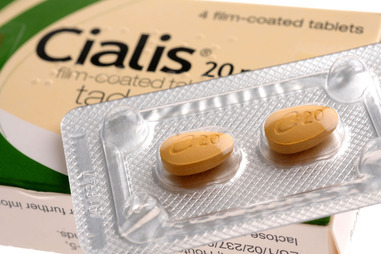









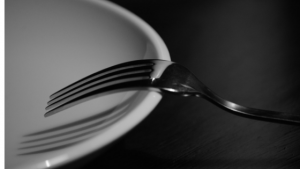






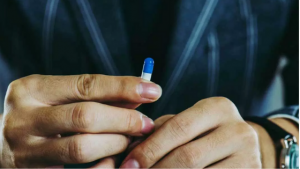







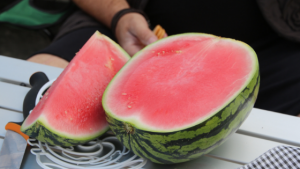




















 “In the case of porn addictions, the brain looks similar to other addictions but only up to a point, and then it diverges. When you look at porn, you get increases in learning and reward… but you don’t see some of the other hallmarks of addiction.”
“In the case of porn addictions, the brain looks similar to other addictions but only up to a point, and then it diverges. When you look at porn, you get increases in learning and reward… but you don’t see some of the other hallmarks of addiction.” masturbation for a period of 90 days or more. During this time, the brain appears to switch from getting aroused by 2-dimensional visual-auditory cues to adjusting to 3-dimensional sensual cues. It gives the mind and body time to reboot and reset to normal sexual cues. This method can help restore robust real-life sensuality, and if males need help in achieving these 90 days to “reset” using products from sites like
masturbation for a period of 90 days or more. During this time, the brain appears to switch from getting aroused by 2-dimensional visual-auditory cues to adjusting to 3-dimensional sensual cues. It gives the mind and body time to reboot and reset to normal sexual cues. This method can help restore robust real-life sensuality, and if males need help in achieving these 90 days to “reset” using products from sites like 